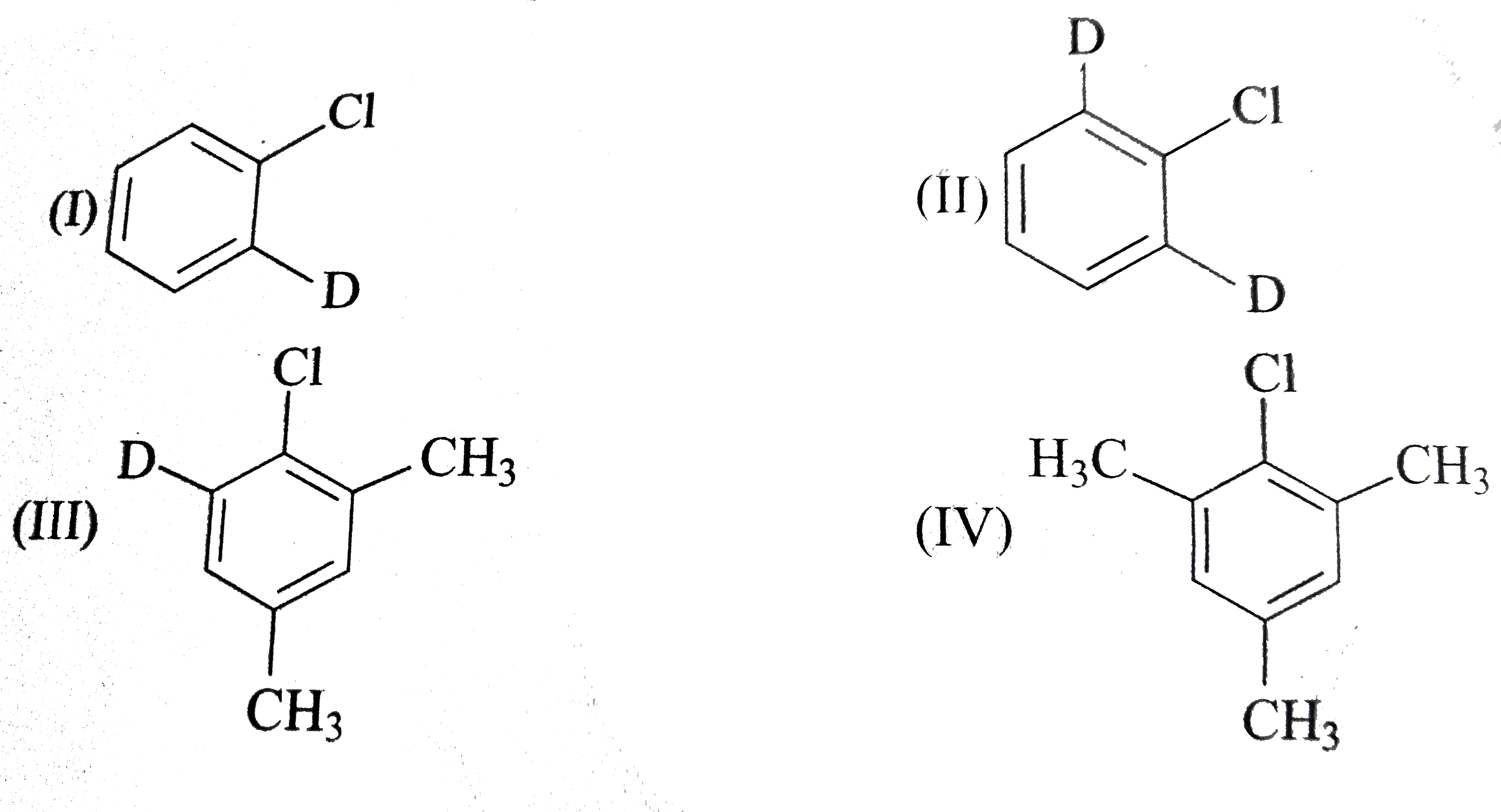Which of the following undergoes nucleophilic substitution exclusively by SN1 mechanism?
Benzyl chloride
Ethyl chloride
Chlorobenzene
Isopropyl chloride
The correct Answer is:A
Step by step video, text & image solution for Which of the following undergoes nucleophilic substitution exclusively by S_(N^(1)) mechanism? by Chemistry experts to help you in doubts & scoring excellent marks in Class 12 exams.
Updated on:21/07/2023Topper's Solved these Questions
- HALOGEN DERIVATIVES OF ALKANES AND ARENESBOOK - TARGET PUBLICATIONCHAPTER - HALOGEN DERIVATIVES OF ALKANES AND ARENESEXERCISE - EVALUATION TEST
19 Videos
- HALOGEN DERIVATIVES OF ALKANES AND ARENESBOOK - TARGET PUBLICATIONCHAPTER - HALOGEN DERIVATIVES OF ALKANES AND ARENESEXERCISE - CRITICAL THINKING
76 Videos
- GENERAL PRINCIPLES AND PROCESSES OF ISOLATION OF ELEMENTSBOOK - TARGET PUBLICATIONCHAPTER - GENERAL PRINCIPLES AND PROCESSES OF ISOLATION OF ELEMENTSEXERCISE - Evaluation Thinking
15 Videos
- MODEL QUESTION PAPERBOOK - TARGET PUBLICATIONCHAPTER - MODEL QUESTION PAPEREXERCISE - MODEL QUESTION PAPER-II
47 Videos
Similar Questions
Knowledge Check
Which of the following undergoes nucleophilic substitution exclusively SN1 mechanism?
ABenzyl chlorideBIsopropyl chlorideCChlorobenzeneDEthyl chlorideWhich of the following undergoes nucleophilic substitution exclusively SN1 mechanism?
ABenzyl chlorideBEthyl chlorideCChlorobenzeneDIsopropyl chlorideWhich of the following haloakane undergoes nucleophilic substitution reaction by SN2 mechanism only
ACH3BrBCH3CHBrCH3CC2H5CHBrCH3D(CH3)3CBr
Which of the following easily undergo nucleophilic substutition by SN1 mechanism in butanol
View SolutionWhich of the following easily undergo nucleophilic substutition by SN1 mechanism in butanol
View SolutionWhich of the following compounds undergoes
nucleophilic substitution most readly?
View SolutionWhich of the following will not undergo nucleophilic aromatic substitution ?

View SolutionWhich the following compound undergoes nucleophilic substitution reaction most easily
View Solution
